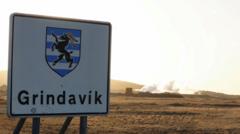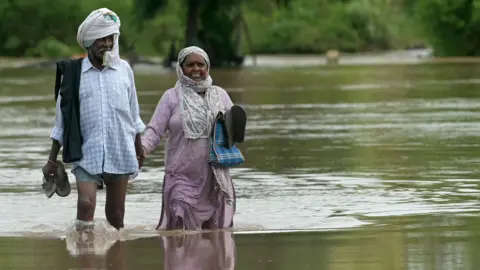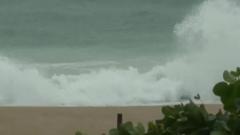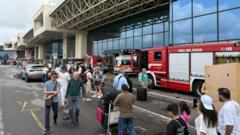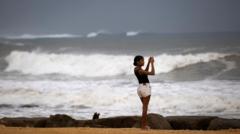A volcanic eruption has erupted on the Reykjanes Peninsula in southwestern Iceland, as confirmed by the Icelandic Meteorological Office. The eruption began at approximately 09:45 local time (10:45 BST), situated just north of the town of Grindavík, an area previously repeatedly evacuated due to volcanic activity. Within just an hour of the eruption's start, the fissure had widened to 700 meters (approximately 2,296 feet) and continues to grow.
This activity follows hundreds of earthquakes that rocked the region, with tremors noted at around 06:30 local time. In anticipation of the eruption, Grindavík and the nearby Blue Lagoon spa, a popular tourist destination, had been under evacuation orders. Roads leading to and from the town are now closed; however, flight operations remain unaffected at this time.
By 11:00 local time, the original fissure had extended southward, revealing a new crack, prompting officials to urge the remaining residents of Grindavík to evacuate. Local media has reported that some individuals hesitated to leave despite the orders. Grindavík, which housed around 4,000 residents, has seen many of its residents displaced since November 2023 due to consecutive eruptions through the following months.
The extent of the current magma tunnel under the crater series measures approximately 11 kilometers (6.8 miles), showcasing significant geological activity since measurements began on November 11, 2023. Additionally, the current wind direction indicates that gas pollution from the eruption will drift toward the capital area, according to the Icelandic Meteorological Office.
Since 2021, the Reykjanes Peninsula has experienced multiple eruptions, a stark contrast to its last active period of volcanic eruptions that lasted decades and occurred roughly 800 years ago. Iceland is well-known for its active geological features, housing 33 active volcano systems along the boundary of the Mid-Atlantic Ridge, where two of the Earth’s largest tectonic plates converge.

